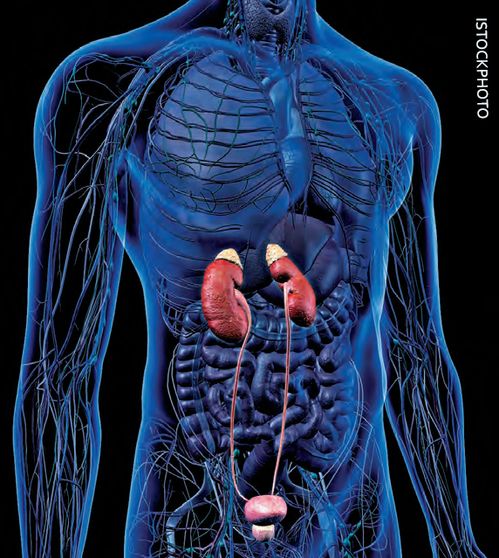Diving after Kidney Donation

I want to donate a kidney to my sister, who is in need. Will donating a kidney effect my ability to dive?
First, thank you for considering being a living kidney donor. The U.S. Department of Health and Human Services reports that more than 114,000 people in the United States are awaiting a lifesaving organ transplant, and someone is added to the waiting list every 10 minutes. About 83 percent of these people are awaiting a kidney, but there simply aren’t enough donors — living or deceased — available to meet the demand.
Your gift of life is heroic and much needed. The concern with diving after donating a kidney is the same as with any abdominal surgery: You must allow a sufficient amount of time for healing not only the external surgical site but also the abdominal wall and the organ structures. For this reason, you’ll likely stay in the hospital for several days. Once discharged you’ll continue your recovery at home. It generally takes about six weeks for you to heal completely and return to your normal routine. If you have no complications in healing, you can consider diving after your surgeon clears you for unrestricted physical activity.
A common symptom following kidney donation is persistent fatigue, which can vary in duration. If you experience significant fatigue, diving is not recommended. Once your fatigue subsides, diving should not present any increased risk. There is no evidence of increased or decreased DCS risk following kidney donation or abdominal surgery. Once your physician clears you to dive, your risks will be no greater than they were before the surgery. For more information about recovery from kidney donation, visit unos.org/donation/living-donation. — Jonathan Gilliam, EMT-P, DMT
First, thank you for considering being a living kidney donor. The U.S. Department of Health and Human Services reports that more than 114,000 people in the United States are awaiting a lifesaving organ transplant, and someone is added to the waiting list every 10 minutes. About 83 percent of these people are awaiting a kidney, but there simply aren’t enough donors — living or deceased — available to meet the demand.
Your gift of life is heroic and much needed. The concern with diving after donating a kidney is the same as with any abdominal surgery: You must allow a sufficient amount of time for healing not only the external surgical site but also the abdominal wall and the organ structures. For this reason, you’ll likely stay in the hospital for several days. Once discharged you’ll continue your recovery at home. It generally takes about six weeks for you to heal completely and return to your normal routine. If you have no complications in healing, you can consider diving after your surgeon clears you for unrestricted physical activity.
A common symptom following kidney donation is persistent fatigue, which can vary in duration. If you experience significant fatigue, diving is not recommended. Once your fatigue subsides, diving should not present any increased risk. There is no evidence of increased or decreased DCS risk following kidney donation or abdominal surgery. Once your physician clears you to dive, your risks will be no greater than they were before the surgery. For more information about recovery from kidney donation, visit unos.org/donation/living-donation. — Jonathan Gilliam, EMT-P, DMT
Categories
2025
2024
February
March
April
May
October
My name is Rosanne… DAN was there for me?My name is Pam… DAN was there for me?My name is Nadia… DAN was there for me?My name is Morgan… DAN was there for me?My name is Mark… DAN was there for me?My name is Julika… DAN was there for me?My name is James Lewis… DAN was there for me?My name is Jack… DAN was there for me?My name is Mrs. Du Toit… DAN was there for me?My name is Sean… DAN was there for me?My name is Clayton… DAN was there for me?My name is Claire… DAN was there for me?My name is Lauren… DAN was there for me?My name is Amos… DAN was there for me?My name is Kelly… DAN was there for me?Get to Know DAN Instructor: Mauro JijeGet to know DAN Instructor: Sinda da GraçaGet to know DAN Instructor: JP BarnardGet to know DAN instructor: Gregory DriesselGet to know DAN instructor Trainer: Christo van JaarsveldGet to Know DAN Instructor: Beto Vambiane
November
Get to know DAN Instructor: Dylan BowlesGet to know DAN instructor: Ryan CapazorioGet to know DAN Instructor: Tyrone LubbeGet to know DAN Instructor: Caitlyn MonahanScience Saves SharksSafety AngelsDiving Anilao with Adam SokolskiUnderstanding Dive Equipment RegulationsDiving With A PFOUnderwater NavigationFinding My PassionDiving Deep with DSLRDebunking Freediving MythsImmersion Pulmonary OedemaSwimmer's EarMEMBER PROFILE: RAY DALIOAdventure Auntie: Yvette OosthuizenClean Our OceansWhat to Look for in a Dive Boat
2023
January
March
Terrific Freedive ModeKaboom!....The Big Oxygen Safety IssueScuba Nudi ClothingThe Benefits of Being BaldDive into Freedive InstructionCape Marine Research and Diver DevelopmentThe Inhaca Ocean Alliance.“LIGHTS, Film, Action!”Demo DiversSpecial Forces DiverWhat Dive Computers Don\'t Know | PART 2Toughing It Out Is Dangerous
April
